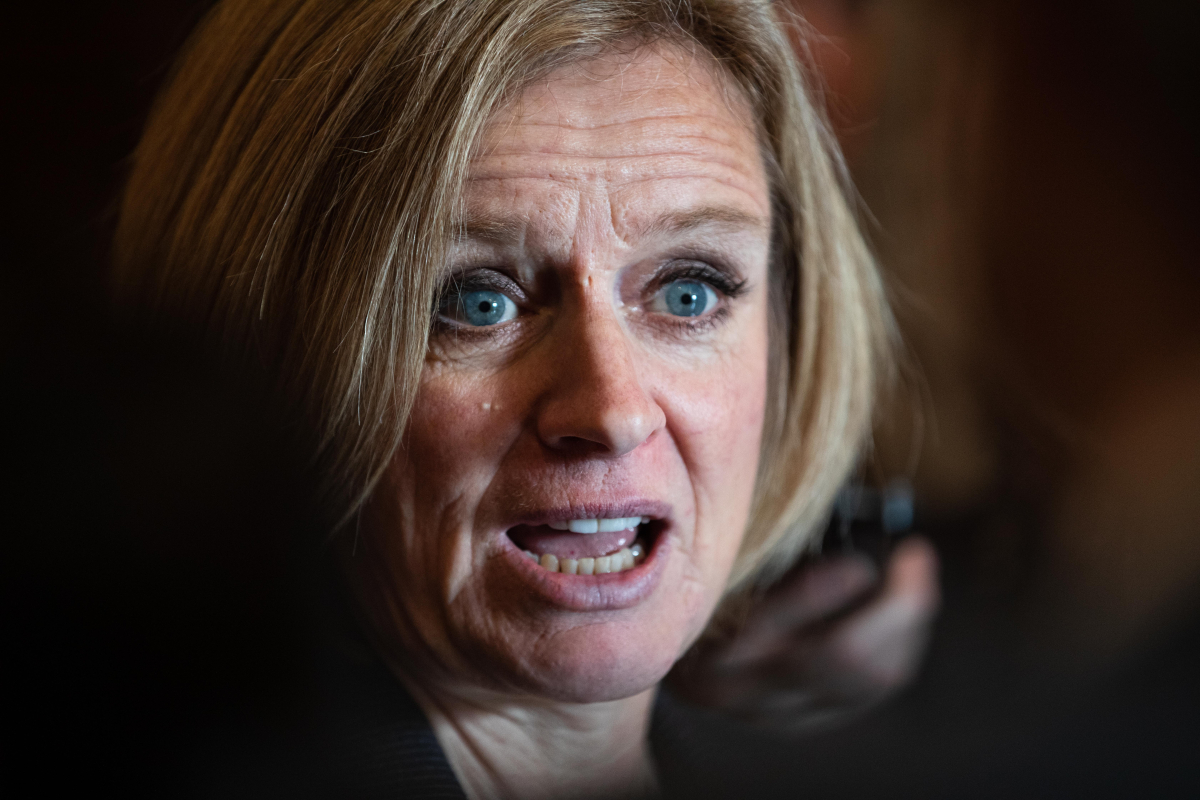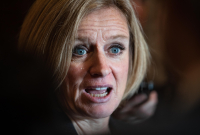Support strong Canadian climate journalism for 2025
The Alberta government's decision to spend $3.7 billion to move more crude by rail is an unintended consequence of its poorly considered production cut order, executives with Husky Energy Inc. charged on Tuesday.
The Calgary-based company, which has opposed provincial curtailments as an unwelcome interference in the market, raised its level of criticism on a conference call to discuss its fourth-quarter results.
The province imposed production quotas as of Jan. 1 designed to keep 325,000 barrels per day of crude off the market, supporting prices by opening space on full export pipelines and drawing down overflowing storage.
Husky maintains that its integrated upstream and downstream operations and pipeline contracts had allowed it to continue to be profitable even when discounts on western Canadian crude reached record levels last November.
"We are now seeing some of the unintended consequences starting to arise, like the rapid fall-off of rail shipments out of the province," said CEO Rob Peabody on the call.
"This curtailment punishes companies like Husky that have made investments in refineries and pipeline capacity while rewarding those companies that have not.... The Alberta government is now shutting in perfectly economic production."
He said an informal secondary crude market has been created in Alberta which has allowed Husky to buy small amounts of oil from other producers to send to market.
Integrated companies like Suncor Energy Inc. and Imperial Oil Ltd. — who had opposed the production cuts — charge that lower discounts mean crude-by-rail is no longer profitable, although curtailment supporter Cenovus Energy Inc has said it would increase its crude-by-rail shipments this year.
The province announced last month it would allow production quotas in February and March to rise by 75,000 bpd due to declining storage levels.
But chief operating officer Rob Symonds said on the call Husky is actually being hit harder now than it was in January.
"In February and March ... the province has said the curtailment is being reduced, but our quota went down," he said. "So our curtailment went up when the provincial number went down. That's why I'm a little confused as to how the math works."
He wouldn't give Husky's actual curtailment number, which he said is about 20 per cent of potential Alberta oil production.
He said the company has shut in some conventional heavy oil wells that will likely be too badly damaged to be started up again when curtailment ends.
Mike McKinnon, spokesman for Alberta Energy Minister Marg McCaig-Boyd, defended the curtailment plan in an email, noting that it is working to improve oil prices and save jobs.
"The decision to temporarily limit production was applied fairly and equitably," he said. "We know that limiting production is not ideal or sustainable. That's exactly why we have a plan to move more oil by rail until new pipelines are built."
The province announced last week its plan to add 120,000 bpd in crude-by-rail capacity by next year. Opposition leader Jason Kenney has said he will cancel the deals with Canada's two major railways if he is elected premier in the spring election.
Husky's fourth-quarter results were hit by suspended production following an oil spill at its White Rose oilfield off the coast of St. John's, N.L., a longer-than-expected maintenance shutdown at its refinery in Lima, Ohio, and lower oil prices.
Husky reported $216 million in net earnings in the last three months of 2018, versus analyst expectations of $257 million, according to Thomson Reuters Eikon.
That compared with a profit of $672 million in the same quarter a year earlier.
Production averaged 304,000 barrels of oil equivalent per day, off from 320,000 boe/d a year earlier.
Husky says output this year is expected to average 290,000 to 305,000 boe/d, including oil curtailments and the loss of production from White Rose through at least the first quarter.
The company's stock closed down by about 7.5 per cent on the Toronto Stock Exchange at $14.77.





Comments